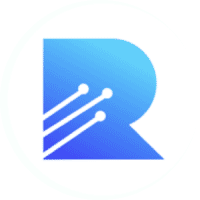
Coin-related
Price calculator
Price history
Price prediction
Technical analysis
Coin buying guide
Crypto category
Profit calculator

Wrapped EOS priceWEOS
Key data of Wrapped EOS
Price of Wrapped EOS today
What is the highest price of WEOS?
What is the lowest price of WEOS?
Wrapped EOS price prediction
When is a good time to buy WEOS? Should I buy or sell WEOS now?
What will the price of WEOS be in 2026?
What will the price of WEOS be in 2031?
Wrapped EOS holdings by concentration
Wrapped EOS addresses by time held

Wrapped EOS ratings
About Wrapped EOS (WEOS)
What Is Wrapped EOS?
There's a token called Wrapped EOS (WEOS) that is used on the Ethereum blockchain. It represents EOS, which is the main cryptocurrency of the EOSIO network. By using WEOS, EOS holders can easily access Ethereum's DeFi landscape. The token is pegged at a 1:1 ratio to EOS, and allows for seamless transfer between the EOSIO and Ethereum blockchains. You can convert EOS to WEOS using Anyswap's cross-chain bridge, which unlocks liquidity, utilities and applications across both chains.
What’s The Potential Of Wrapped EOS Price?
The potential for Wrapped EOS is looking positive. To increase DeFi adoption, it's crucial to have interoperability between different blockchain ecosystems, and WEOS could serve as a bridge between the thriving EDS and Ethereum landscapes as innovation continues to expand across both chains. If it gains more traction as a bi-directional transfer mechanism, WEOS could experience significant growth in the future. However, managing its peg and driving user adoption remain challenges that need to be addressed. Overall, Wrapped EOS presents promising capabilities. It allows EOS holders to access Ethereum's DeFi ecosystem while still benefiting from the utility of EOS. Although it's still in the early stages, it represents a step towards increased asset portability and chain interoperability, which is a necessary requirement for decentralized finance to reach mainstream adoption. As solutions like WEOS continue to evolve, they hold exciting potential to connect the fragmented blockchain world into a more unified ecosystem.
What Makes EOS Unique?
EOS is a cutting-edge Layer 1 blockchain that boasts high performance and low latency, enabling developers to bring their visions to life with programmable architectures, versatile blockchain infrastructures, and customized smart contracts. What sets EOS apart is its robust technological stack and thriving community. This network is home to several dynamic communities, each with their unique ideas and leadership. Token holders work hand in hand with developers and other ecosystem leaders to promote growth. The EOS community values transparency, openness, honesty, accountability, liberty, respect, and different core blockchain values. EOS is the world's first blockchain with a community-led foundation and user support. Notably, token holders elected a foundation to spearhead network growth, while community members launched EOS live support for users on the network.
Is EOS Proof-of-Stake (PoS)?
The consensus mechanism underlying EOS is Delegated Proof of Stake (DPoS). In order to validate the EOS blockchain, anyone can run a node in a trustless manner. However, only a select few entities known as Block Producers (BPs) are given permission to produce blocks and determine the canonical blockchain. Unlike Proof of Stake (PoS), BPs are not required to lock up tokens. Instead, token holders delegate their share of tokens to their preferred BP candidates, and the top 21 candidates ranked by aggregate delegated token stake are chosen as the active block producers.
How Is the EOS Network Secured?
The EOS blockchain is powered by delegated-proof-of-stake (DPOS), a type of proof-of-stake that grants governance power to token holders in proportion to their stake in the system. Token holders have a pro-rata claim on both the network's resources and its governance rights. The EOS Network is a decentralized operating system governed by a DAO. With DPOS, EOS token holders delegate their stake to elect representatives who validate transactions, which helps prevent consolidation by ensuring smaller miners are not pushed out by those with greater computing power and resources.
How to buy Wrapped EOS(WEOS)

Create Your Free Bitget Account

Verify Your Account

Convert Wrapped EOS to WEOS
Join WEOS copy trading by following elite traders.
Buy more
FAQ
What is use case of Wrapped EOS?
What makes Wrapped EOS unique?
Is Wrapped EOS safe?
How many Wrapped EOS coins are in circulation?
What is a Wrapped EOS token?
Who founded Wrapped EOS?
What is the current price of Wrapped EOS?
What is the 24 hour trading volume of Wrapped EOS?
What is the all-time high of Wrapped EOS?
Can I buy Wrapped EOS on Bitget?
Can I get a steady income from investing in Wrapped EOS?
Where can I buy Wrapped EOS with the lowest fee?
Video section — quick verification, quick trading

WEOS resources
Related assets


































